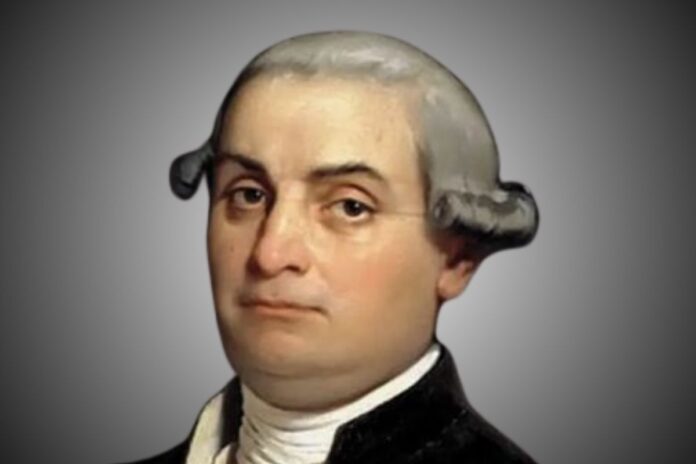Cesare Bonesana di Beccaria (15 March 1738 – 28 November 1794) was an Italian criminologist, jurist, philosopher, economist, and politician, widely regarded as one of the most important thinkers of the Enlightenment. His most famous work, On Crimes and Punishments (1764), argued against the use of torture and the death penalty, making a groundbreaking contribution to the field of penology and laying the foundation for modern criminal law. This treatise became a cornerstone in the development of the classical school of criminology.
Introduction:
Cesare Beccaria was more than just a philosopher and jurist – he was a revolutionary thinker whose ideas continue to shape modern criminal law. Born in 1738 in Milan, Beccaria’s work “On Crimes and Punishments” sparked a radical shift in how society viewed crime and punishment. In this article, we’ll explore his groundbreaking ideas, his influence on the criminal justice system, and how his legacy endures today.
Who Was Cesare Beccaria?
Cesare Beccaria was an Italian scholar, philosopher, and legal reformer, often hailed as one of the founding fathers of modern criminology. His life and work, particularly his seminal treatise “Dei delitti e delle pene” (On Crimes and Punishments), transformed the way we think about crime and punishment.
Beccaria’s ideas helped move away from the barbaric and arbitrary practices of the past, emphasizing justice, fairness, and human rights in the legal process. He believed in a system that was not only effective but also humane, paving the way for significant reforms in law and society.
Beccaria’s Key Ideas on Criminal Justice
1. The Right to a Fair Trial
One of Beccaria’s most significant contributions was his advocacy for the right to a fair trial. He argued that accused individuals should be considered innocent until proven guilty, a concept that forms the bedrock of many modern legal systems. Before his time, torture and coerced confessions were commonly used to extract information from suspects, but Beccaria condemned these practices as ineffective and unjust.
2. The Principle of Proportionality in Punishments
Beccaria argued that punishments should be proportionate to the crime committed. In his view, harsh and excessive penalties did not deter crime and instead led to more social injustice. He believed that the purpose of punishment should be to prevent further crimes, not to exact revenge. This idea was groundbreaking because it pushed back against the prevailing notion that punishment should be severe enough to frighten people into compliance.
3. The Abolition of Torture and the Death Penalty
Beccaria was a staunch opponent of both torture and the death penalty. He believed that torture violated the fundamental rights of individuals and that the death penalty was neither a just nor effective form of punishment. His arguments influenced many countries to reconsider and ultimately abolish these practices, particularly in Europe and the Americas.
The Impact of Beccaria’s Work
Beccaria’s ideas were revolutionary for his time and laid the groundwork for criminal justice reform throughout the world. His advocacy for a rational and systematic approach to criminal law was a sharp departure from the arbitrary and often cruel practices that had previously dominated legal systems.
Global Influence:
Beccaria’s work was widely read and influenced legal reformers across Europe and the Americas. His thoughts inspired many of the founding fathers of the United States, including Thomas Jefferson and Benjamin Franklin, who incorporated his ideas into the development of American criminal law.
In addition to shaping legal reforms in Europe and the U.S., Beccaria’s ideas contributed to the broader philosophical movement known as the Enlightenment. His emphasis on reason, equality, and human rights resonated with other intellectuals of the era, making him a key figure in the shaping of modern democratic values.
Influence on Modern Criminal Justice Systems:
Today, Beccaria’s ideas are reflected in many aspects of criminal law and policy. The principles of proportionality in sentencing, the presumption of innocence, and the push for humane treatment of prisoners all trace their roots to Beccaria’s groundbreaking work. In fact, his thoughts on punishment still inform discussions about prison reform, sentencing guidelines, and the ethics of capital punishment.
Key Concepts from Cesare Beccaria’s Work
- Punishments Should Be Swift and Certain: Beccaria believed that punishments should be swift and certain, rather than arbitrary and severe. This idea was meant to make laws more predictable and prevent the public from viewing the justice system as unjust.
- Deterrence Over Retribution: The idea that punishment should serve as a deterrent, rather than as a means of retribution, was revolutionary. Beccaria argued that a rational and just system of punishment would deter crime more effectively than fear-based punishment.
- Against Arbitrary Power: Beccaria was a vocal critic of arbitrary power and tyranny, arguing that no ruler should have the absolute authority to impose severe punishments without clear laws and fair procedures.
Beccaria’s Legacy in Modern Society
Cesare Beccaria’s legacy is still visible today in the way the world handles criminal justice. From the European Union’s stance on human rights to the global movement to abolish the death penalty, Beccaria’s ideas have played a major role in shaping modern legal principles. His advocacy for a fair, just, and humane system of law continues to resonate, making him one of the most influential thinkers in the history of criminal justice.
Frequently Asked Questions (FAQs)
Q: What did Cesare Beccaria believe about the death penalty? Beccaria was firmly opposed to the death penalty, arguing that it was inhumane and ineffective as a deterrent to crime. He believed that society could pursue more humane and effective forms of punishment.
Q: How did Cesare Beccaria influence modern criminal law? Beccaria’s emphasis on proportionality, fair trials, and humane punishment helped shape modern legal systems, influencing key reforms such as the abolition of torture and the death penalty in many countries.
Q: Was Cesare Beccaria’s work only influential in Italy? No, Beccaria’s work had a significant impact worldwide, particularly in Europe and the United States, where his ideas on justice and punishment influenced key thinkers, including Thomas Jefferson.
Wrapping Up: Cesare Beccaria’s Lasting Influence
Cesare Beccaria’s contributions to criminal justice reform remain a cornerstone of modern legal thought. His belief in fairness, proportionality, and human dignity helped shape the legal systems we rely on today. As we continue to challenge outdated practices and advocate for more equitable justice systems, Beccaria’s pioneering work will remain a guiding force for reformers around the world.




